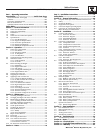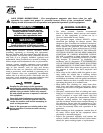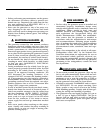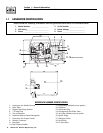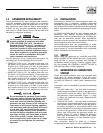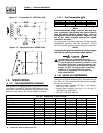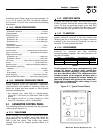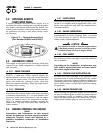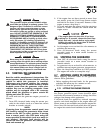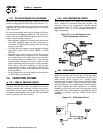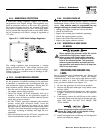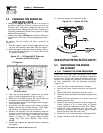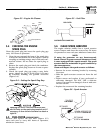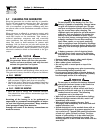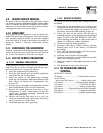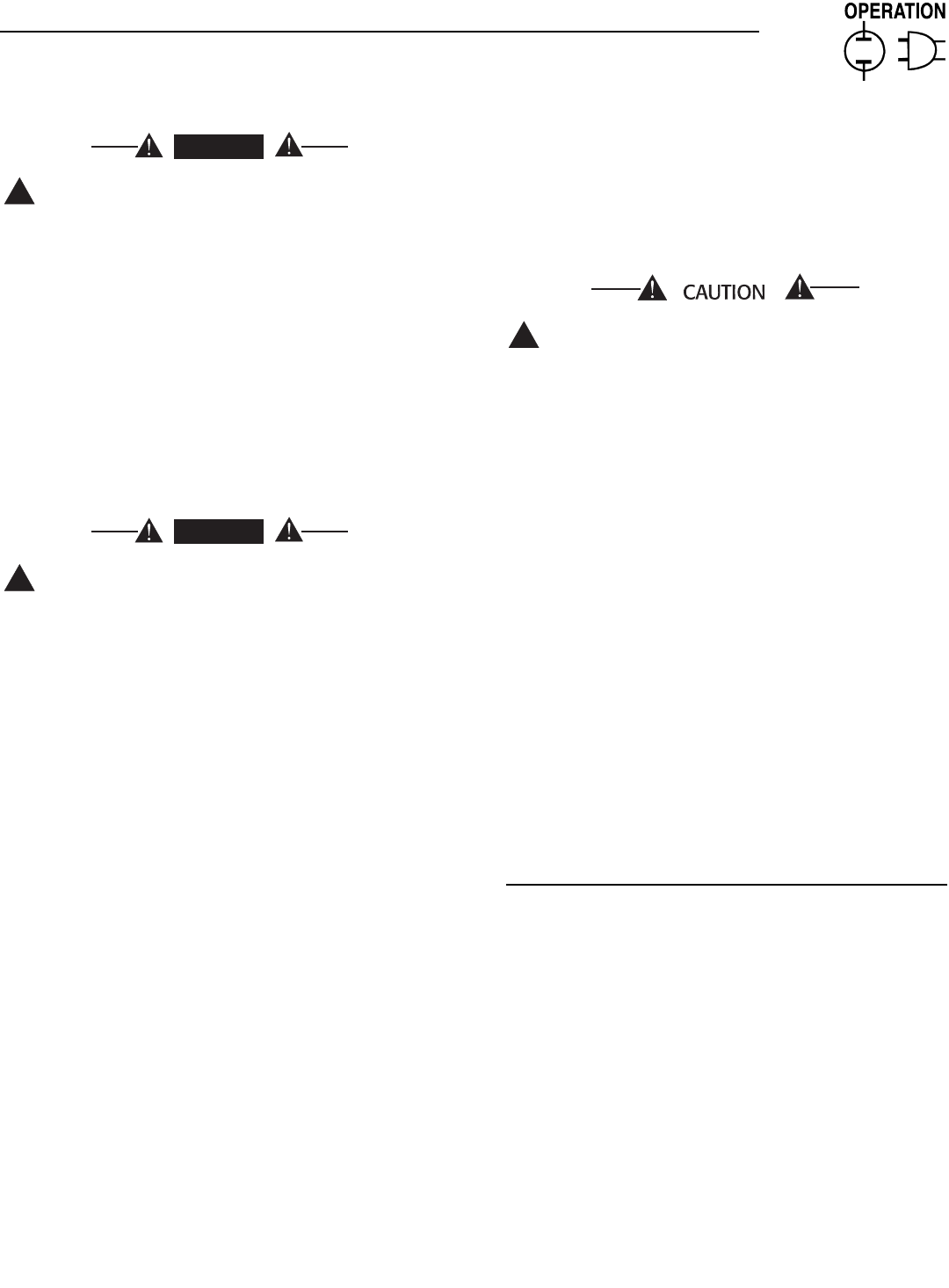
Generac
®
Power Systems, Inc. 9
Section 2 – Operation
QUIETPACT 55, 65, and 75 Recreational Vehicle Generators
The generator engine releases DEADLY carbon
monoxide gas through its exhaust system. This
dangerous gas, if breathed in sufficient concen-
trations, can cause unconsciousness or even
death. Never operate the generator set with
the vehicle inside any garage or other enclosed
area. DO NOT OPERATE THE GENERATOR IF THE
EXHAUST SYSTEM IS LEAKING OR HAS BEEN
DAMAGED. SYMPTOMS OF CARBON MONOX-
IDE POISONING ARE (a) inability to think coher-
ently, (b) nausea, (c) vomiting, (d) twitching
muscles, (e) throbbing temples, (f) dizziness, (g)
headaches, (h) weakness, and (i) sleepiness. IF
EXPERIENCING ANY OF THESE SYMPTOMS,
MOVE INTO FRESH AIR IMMEDIATELY. IF SYMP-
TOMS PERSIST, GET MEDICAL HELP. Shut down
the generator and do not operate it until it has
been inspected and repaired.
Never sleep in the vehicle while the genset is
running unless the vehicle has a working carbon
monoxide detector. The exhaust system must be
installed in accordance with the genset installa-
tion manual. Make sure there is ample fresh air
when operating the genset in a confined area.
2.5 STARTING THE GENERATOR
NOTE:
Read the vehicle manufacturer’s instructions. The
owner/operator should become familiar with the
vehicle in which this generator is installed.
Differences exist between vehicles. For example,
some vehicles may use a transfer switch to isolate
dockside power from the generator, while other
vehicles may use an isolating receptacle. Some
vehicles may be equipped with a DC converter
which allows the generator to power certain DC
lighting and other DC loads.
To crank and start the generator engine, proceed as
follows:
1. Turn OFF electrical loads using the means pro-
vided in the vehicle (such as a main line circuit
breaker or transfer switch).
NOTE:
If starting from the generator control panel, turn
OFF loads by setting the generator’s main circuit
breaker to the OFF (or open) position. If starting
from a remote panel, turn OFF loads using the
means provided in the vehicle (such as a main cir-
cuit breaker). Electrical load circuits will be
turned ON after the generator has started, stabi-
lized and warmed up.
2. If the engine has not been started in more than
two weeks, press the Fuel Pump Primer switch
and hold it for about 10 seconds. However, if the
engine is warm, skip Step 2.
3. To crank and start the engine, hold the start/stop
switch at START. Release the switch when the
engine starts.
If the engine does not start after it has been
cranking for 15 seconds, release the Start/Stop
switch and wait 1 minute before trying again.
Holding the switch for longer than 15 seconds
can damage the starter motor.
4. Let the engine run at no-load for a few minutes to
stabilize and warm up.
5. Turn ON electrical loads using the means
provided (such as a main circuit breaker or
transfer switch).
2.6 STOPPING THE GENERATOR
1. Turn OFF all electrical loads using the means
provided (such as a main circuit breaker or
transfer switch).
2. Let generator run at no-load for a few minutes, to
stabilize internal engine generator temperatures.
3. Place the Start/Stop switch in its STOP position.
The engine will come to a complete stop.
2.7 APPLYING LOADS TO GENERATOR
When applying electrical loads to the generator,
observe these guidelines:
• Before applying electrical loads, let the generator
stabilize and warm up for a minute or two.
• DO NOT overload the generator.
2.7.1 LETTING THE ENGINE STABILIZE
The generator supplies correct rated voltage only at
the proper governed speed. Some electrical appli-
ances may be extremely sensitive to voltage. Incorrect
voltages can damage such appliances.
If electrical loads are applied at reduced operating
speeds, such loads imposed on the engine when suf-
ficient power is not available may shorten engine life.
Never turn ON electrical loads until after the genera-
tor engine has started and stabilized at no-load.
◆
!
!
DANGER
!
DANGER



